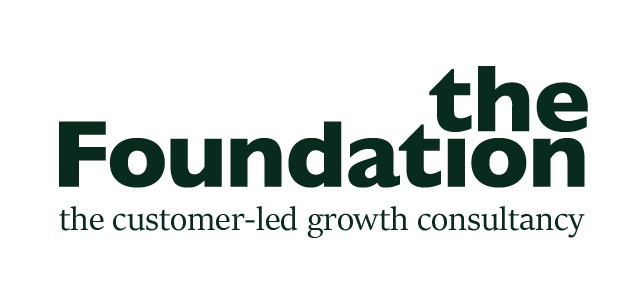Why you can't control customer decisions, but you can earn them
Ever wonder why customers don’t behave the way you expect them to? Our partner, Anna Miley, looks at the illusion of control and explains that the real secret to growth isn’t controlling customer behaviour, but rather earning their decision to choose you.
How many times have you pressed the button for the lift hoping it might come that bit quicker? Or found yourself leaving the motorway ahead of a delay even though the A-road route will take you longer than waiting in the tailback?
You’re not alone. We all do these slightly irrational things because taking action – any action – makes us feel like we're influencing the outcome, and that feels good.
This illusion of control isn't stupidity; it's human psychology. And it's playing out in every organisation across the country.
Researchers Ellen Langer and Judith Rodin discovered just how powerful this illusion can be in their landmark 1976 study of elderly people in a care home. They gave one group of residents small choices – where to put a plant, how to arrange their room, which night to watch a film. Nothing revolutionary, but the results were extraordinary. These residents felt happier, became more alert, and remarkably, lived longer than those who had identical care but no choices.
Having control – even the illusion of it – is psychologically essential. It gives us confidence when facing uncertainty.
The boardroom illusion
This same psychology dominates how we think about growth. We launch features believing they'll drive adoption. We craft messages convinced they'll change minds. We design customer journeys assuming people will follow our carefully planned paths.
We've built entire strategies around the belief that we can control customer behaviour – that the right incentive, message, or experience will make customers choose us, buy from us, stay with us.
As leaders, we're conditioned to believe in our ability to control outcomes. We create detailed strategic plans, implement sophisticated CRM systems, research behavioural triggers to nudge customers towards our desired actions. Traditional management thinking reinforces this: identify the problem, design the solution, execute the plan.
The uncomfortable truth? This control is largely an illusion.
Reality check
Customers have their own priorities, and they make decisions in ways that often ignore our carefully crafted strategies. A friend's recommendation trumps months of careful brand building. An unexpected expense delays a purchase despite perfect timing. A competitor's feature that wasn't even on our radar suddenly becomes top priority.
Take subscription businesses spending millions on onboarding flows designed to drive feature adoption, only to discover that customers who stick around are primarily those who found their own way to value – often using the product completely differently than intended.
Or online retail brands optimising checkout processes to reduce abandonment, but the reason customers are actually leaving is because delivery timescales or options don't work for them.
We become so focused on perfecting our internal processes that we lose sight of the external reality where customers make their actual decisions. We spend months designing the experience we want to deliver and significantly less time understanding what customers actually want to receive.
From control to consideration
Instead of trying to control customer behaviour, we need to earn consideration. This means a fundamental shift in how we approach growth:
Understand what actually matters. Not what we think should matter, but what customers genuinely value. Often this means operational excellence over exciting innovation.
Accept customer needs exist independently. They're not waiting for us to educate them about what they should want. We need to adapt what we do to fit their existing needs rather than trying to train them to behave differently.
Create genuine value exchanges. Customers need a compelling reason to give us their attention, data, or money. "Because we need to grow" isn't compelling. "Because this solves a real problem for you" is.
Make choosing easy. Be available when they're ready to buy, not just when we're ready to sell. Remove friction from their decision-making process.
The reality of earning decisions
This isn't about abandoning strategy or accepting mediocrity. It's about recognising that customers will make their own decisions regardless of what we want. Our job is to earn those decisions rather than control them.
